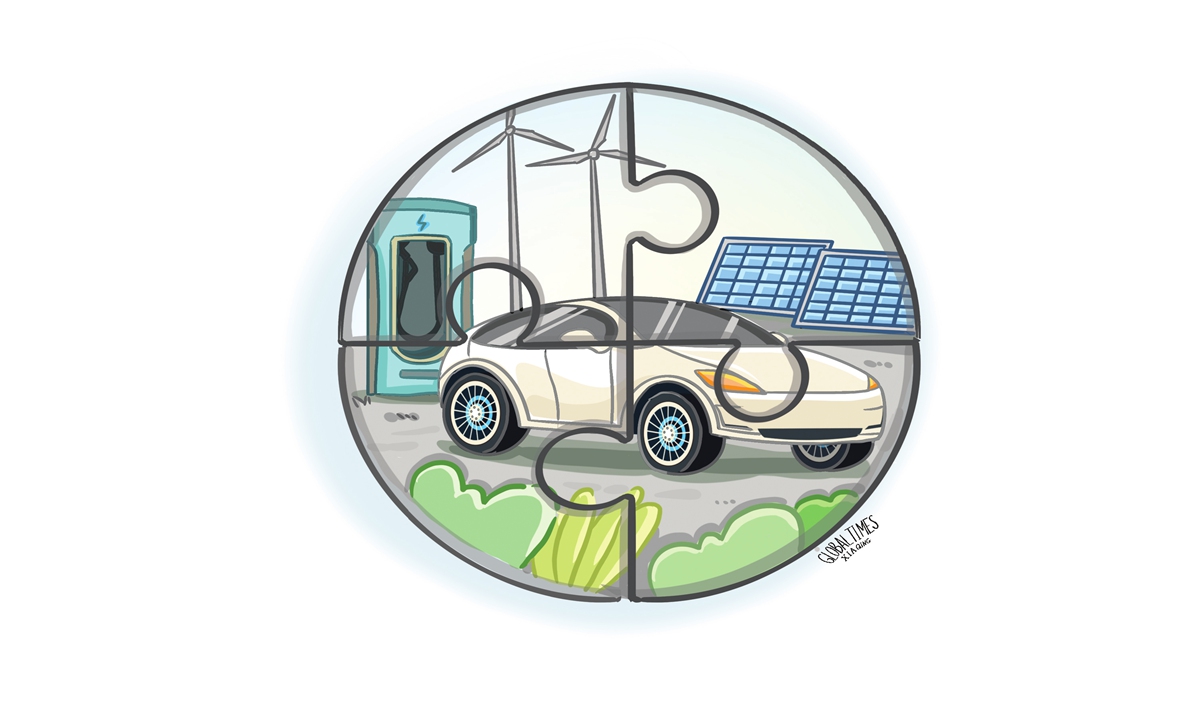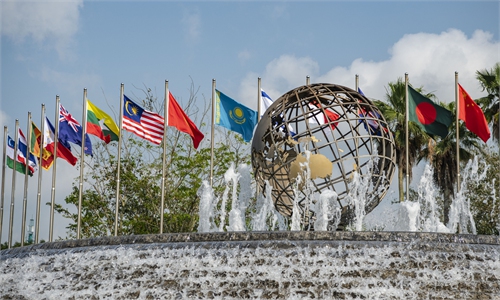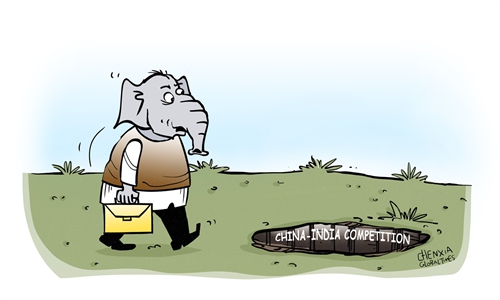
Illustration: Xia Qing/GT
Amid escalating tensions caused by new US tariffs on electric vehicles (EVs) from China, as well as the increasingly fierce competition faced by Western automakers, it is not surprising that some foreign media outlets have been cherry-picking information or even manufacturing stories to claim some US and EU auto manufacturers may accelerate the diversification of their supply chains by producing components and parts outside of China. However, "decoupling" and supply chain cutoffs are neither possible nor feasible.Recent decades have seen auto companies from the US and EU continuously increasing investment in China, for multiple reasons.
On the one hand, China has a supersize market. Profits from China sales have been an important source of revenue for many Western auto companies. On the other hand, China's well-established industrial chain has helped these manufacturers achieve the dual goals of cutting production costs and improving the quality of their products through the development of special and sophisticated technologies.
China's supply chain advantage has, to some extent, served as a key piece in the puzzle for these automakers' competitiveness.
Many Western auto manufacturers have been striving to strengthen the localization of their operations since they entered China. Take Tesla, for example: according to media reports, Tesla's localization rate of components used in its Gigafactory in Shanghai has exceeded 95 percent.
It is precisely because of China's well-established supply chain that Tesla's Gigafactory in Shanghai is reportedly able to produce a vehicle in less than 40 seconds.
The competitiveness of made-in-China EVs comes from continuous technological innovation, efficient production and complete supply chains, as well as high labor productivity. Western auto manufacturers are among the ultimate beneficiaries of all of those factors. If Western auto companies accelerate their supply chain shift from China to other countries, or even decouple from the Chinese industrial chain, their competitiveness will be significantly reduced.
There is no need to deny that Western auto companies are facing tough competition in China, which is an inevitable result of the rise of China's EV brands. Some foreign media outlets are keen to hype the competition, and some have said that some Western automakers have to scale back production in China.
It is not wise to draw simplistic conclusions. The depth and breadth of contemporary cooperation between US and EU automakers and China's supply chains go beyond what some Westerners can imagine. If Western companies move production out of China, it will be difficult for them to compete with Chinese companies, whose competitiveness comes from the country's inherent supply chain advantages and other factors.
So it is deeply regrettable that US President Joe Biden has decided to impose tariffs of 100 percent on EVs made in China. This approach will seriously disrupt global supply chains. Western companies operating in China may also be negatively affected. Some manufacturers may be forced to make adjustments and bear the losses themselves.
It is believed these companies will spare no efforts to minimize their losses, which means that even if they make adjustments, the range won't be large. It should be noted that the development of China's EV sector won't be affected.
China is well ahead in terms of core supply chains, mass production and the technological development of EVs. China's process in this regard has not finished yet. The competitiveness of China's EV sector will continue to rise.
In contrast to the unprecedented and increased trade protectionism measures the US has launched against China's EV sector, China will continue to cooperate with Western companies and welcome them to share China's development opportunities.
With the continuous rise of China's EV sector, Western companies have no choice but to continue strengthening cooperation with China's supply chain, which will help them gain more benefits and improve their position amid fierce competition.
The author is a reporter with the Global Times. bizopinion@globaltimes.com.cn



